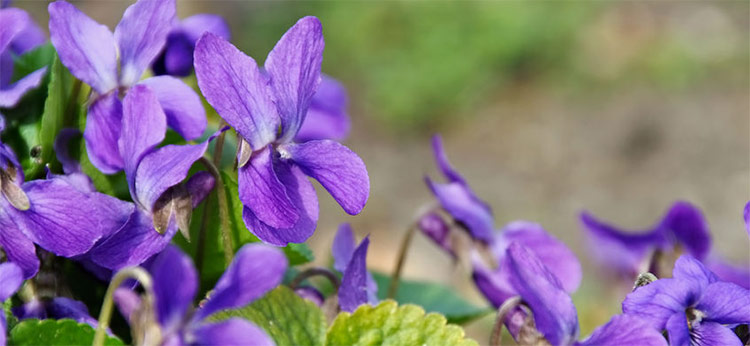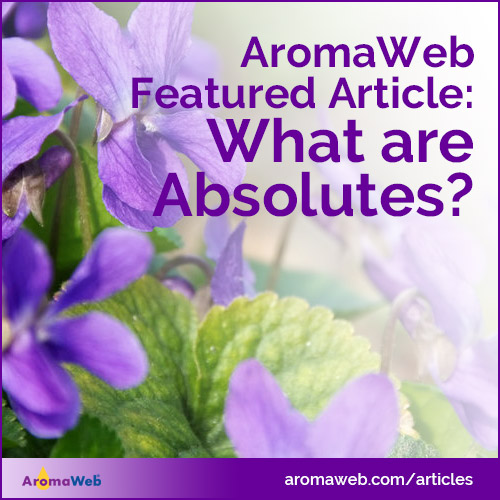What are Absolutes?

Like their essential oil counterparts, absolutes are highly aromatic, concentrated liquids extracted from plants that are used within aromatherapy and natural perfumery and fragrancing applications. Absolutes, however, are not distilled in a still. Absolutes are extracted in a complex manner that requires the use of a chemical solvent to extract the precious aromatics from the plant material. The solvent is then later removed during the final stages of production. A trace amount of the solvent, however, can potentially remain in the final aromatic absolute.
What Role do Absolutes Play in Aromatherapy?
Although the amount of remaining solvent is considered tiny in carefully extracted absolutes, steam distilled essential oils are generally preferred within the scope of holistic aromatherapy.
Having said that, absolutes do hold their place within holistic aromatherapy, natural perfumery and commercial fragrancing applications. As with steam distilled essential oils, absolutes must be used with care, respect and knowledge.
While essential oils can offer benefit when taken internally by those properly educated in the internal application of steam distilled essential oils, absolutes are avoided for internal use because of the trace solvent that they contain.
Generally speaking, absolutes tend to be pricy, and this also can also influence their usage within the scope of aromatherapy.
Within the scope of holistic aromatherapy, absolutes tend to be best used for their contribution to emotional wellness, spiritual applications and for enhancing the aroma of blends.
Why are Some Plants Solvent Extracted to Produce Absolutes?

The composition of some botanicals includes aromatic molecules that are too heavy to be effectively distilled. Solvent extraction methods are often used in these cases because the solvent is capable of extracting heavier aromatic molecules.
For example, you will notice that Jasmine Absolute is typically available for sale through reputable essential oil suppliers, but you won't find Jasmine Essential Oil. This is because the aroma that we love and associate with jasmine includes aromatic molecules that are too heavy to come across during essential oil steam distillation which can only capture the more lighter weight aromatic molecules.
Rose is one of the more unique florals because it is available as Rose Absolute, Rose Otto Essential Oil and Rose CO2 Extract. Each possesses rose's distinctive floral aroma, but there are definite aromatic and compositional differences. Rose Absolute tends to be the most affordable because of its yield. Creating Rose Absolute requires less roses per kg of rose petals than does Rose Otto Essential Oil.
How Aromatic are Absolutes?
As a rule, absolutes are more aromatically potent than their essential oil cousins. While it is true that a little essential oil goes a long way, a little absolute typically goes an even longer way.
Why are Absolutes Sometimes Categorized in With Essential Oils?
AromaWeb's Essential Oil Profile Directory and Essential Oil Safety Edition 2 by Robert Tisserand and Rodney Young are examples of this. To elaborate further, Chapter 13 of Essential Oil Safety, is entitled "Essential Oil Profiles." In addition to providing details for over 350 essential oils, the "Essential Oil Profiles" chapter includes the details for approximately 40 absolutes and two resinoids.
As long as an absolute is clearly designated as a solvent extracted absolute, it is generally considered acceptable for absolutes, CO2s and resins to be listed in a category that is simply named "Essential Oils" for brevity.
The cause for concern occurs when a company, salesperson, author or instructor refers to or lists a particular oil as an "essential oil" when it is actually an absolute. For example, it is not appropriate to refer to "Oakmoss Absolute" as "Oakmoss Essential Oil."
